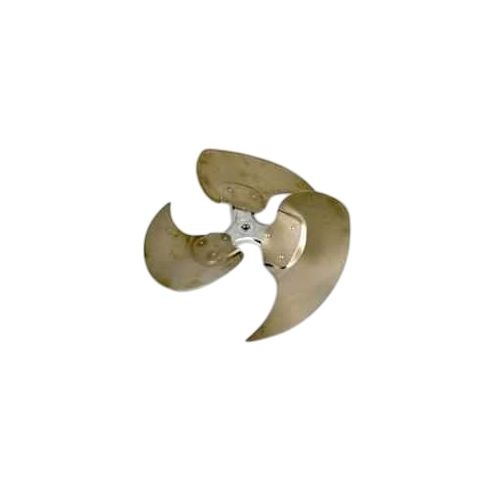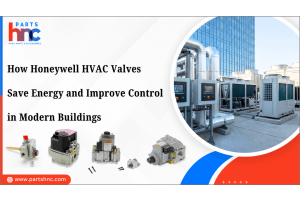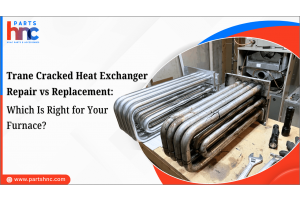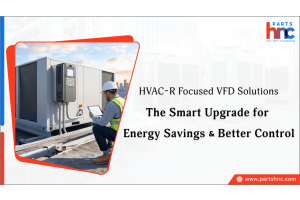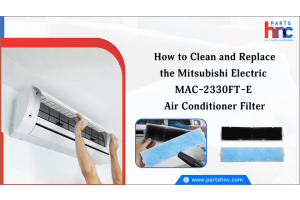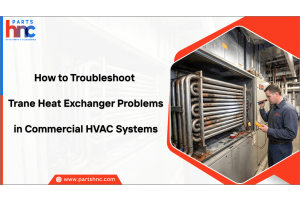Revolutionizing Indoor Air Quality: The Role Of HEPA Filters In HVAC Systems
Maintaining optimal indoor air quality (IAQ) is more critical than ever as we navigate environmental challenges and heightened health concerns. One of the most significant innovations in this space is the implementation of High-Efficiency Particulate Air (HEPA) filters in HVAC systems. These filters, designed to trap microscopic particles that can compromise air quality, play an essential role in both residential and commercial buildings. Understanding the role of HEPA filters in HVAC systems offers insights into how air quality can be dramatically improved, creating healthier and more efficient indoor environments.
Table of Contents
- The Importance of Indoor Air Quality in Modern Spaces
- Understanding HEPA Filters: What Makes Them Special?
- HEPA Filters in HVAC Systems: A Perfect Pairing
- The Health Benefits of HEPA Filters in HVAC Systems
- Energy Efficiency and HEPA Filters: Balancing Clean Air and Consumption
- Choosing the Right HEPA Filter for Your HVAC System
- The Future of Indoor Air Quality: Emerging Trends in HVAC and HEPA Technology
- Conclusion: HEPA Filters as a Key to Better Indoor Air Quality
- FAQs
The Importance of Indoor Air Quality in Modern Spaces
Indoor air quality has become a pivotal consideration in building design, particularly in workplaces, hospitals, schools, and homes. Poor IAQ has been linked to various health issues, including respiratory problems, allergies, asthma, and other long-term conditions. Additionally, low-quality air can significantly impact productivity, concentration, and general well-being.
As modern buildings become more insulated and energy-efficient, they can trap pollutants inside, worsening air quality unless proper ventilation and filtration are in place. HVAC systems, which control heating, ventilation, and air conditioning, have become crucial in mitigating these concerns. In particular, these HVAC air conditioning filters, recognized for their ability to capture tiny particles, are increasingly used to enhance HVAC systems' efficiency in maintaining clean and breathable air.
Understanding HEPA Filters: What Makes Them Special?
HEPA filters are known for their high efficiency in trapping airborne particles. To be classified as a true HEPA filter, it must capture at least 99.97% of particles as small as 0.3 microns in diameter, including dust, mold, bacteria, and viruses. This precision filtration is what sets HEPA filters apart from standard air filters commonly found in HVAC systems.
The structure of a HEPA filter consists of dense layers of fine fibers arranged randomly to create a maze through which air flows. As air passes through the filter, contaminants are caught by one of three mechanisms:
- Interception: Particles adhere to the fibers as they pass close to them.
- Impaction: Larger particles are unable to navigate the maze and crash directly into the fibers.
- Diffusion: Smaller particles move erratically and get caught in the filter due to their random motion.
This multi-layered capture mechanism makes HEPA filters extremely effective in removing harmful pollutants from the air, ensuring a much higher level of purification than standard filters.
Also Read on: What Are The Most Important Parts Of Your HVAC Systems?
HEPA Filters in HVAC Systems: A Perfect Pairing
Integrating HEPA filters into HVAC systems marks a significant advancement in the quest for cleaner indoor air. HVAC systems are responsible for circulating air throughout a building, making them the perfect vessel for filtering large volumes of air efficiently. When equipped with HEPA filters, HVAC systems can capture a vast majority of airborne contaminants that traditional filters would miss.
How It Works: HEPA filters are typically added to the return air duct in an HVAC system, where they filter the air before it is recirculated into the building. This setup ensures that the HVAC system not only controls the temperature and humidity of the indoor environment but also continuously filters out harmful particles, improving air quality over time.
However, the integration of HEPA filters in HVAC systems requires careful planning. Because HEPA filters are denser than regular filters, they can cause a significant drop in air pressure, making it harder for the system to push air through. This can potentially strain the HVAC system, increasing energy consumption or reducing its effectiveness. Therefore, HVAC systems with HEPA filters must be designed or retrofitted to handle the additional pressure drop.
Check out these 7 Common HVAC Problems During The Winter
The Health Benefits of HEPA Filters in HVAC Systems
The primary reason for using HEPA filters is to improve health outcomes. These filters can remove allergens, pathogens, and harmful pollutants from indoor environments, helping to reduce the incidence of respiratory conditions and improve overall well-being.
- Allergy and Asthma Relief
Dust mites, pollen, and pet dander are among the most common allergens that trigger allergic reactions and asthma attacks. Because HEPA filters can trap these particles, they provide significant relief for individuals who suffer from allergies and asthma by ensuring cleaner air throughout the building.
- Pathogen Control
HEPA filters are especially beneficial in environments where controlling pathogens is crucial, such as hospitals, schools, and office buildings. These filters can capture airborne bacteria and viruses, helping to reduce the spread of infections in high-traffic indoor spaces.
- Protection from Airborne Pollutants
Urban environments are often filled with airborne pollutants, including fine particulate matter from vehicle exhaust, industrial emissions, and smoke. HEPA filters are effective at removing these pollutants, protecting individuals from the long-term health effects associated with prolonged exposure, such as cardiovascular and respiratory diseases.
Energy Efficiency and HEPA Filters: Balancing Clean Air and Consumption
One common concern with using HEPA filters in HVAC systems is the potential increase in energy consumption. Due to their dense construction, HEPA filters can create more resistance for the air moving through the system. This means the HVAC unit has to work harder to maintain the desired airflow, potentially increasing energy use.
However, technological advancements in HVAC system design have mitigated these challenges. Modern HVAC systems can be equipped with variable-speed motors that adjust their output based on airflow needs, helping to maintain energy efficiency even with the addition of HEPA filters.
Other Energy-Saving Strategies Include:
- Upgrading HVAC Equipment: Older systems may struggle with the increased load of HEPA filters. Upgrading to more efficient units can offset the additional energy costs.
- Regular Maintenance: Ensuring that both the HVAC system and HEPA filters are maintained properly can prevent unnecessary strain on the system, reducing energy usage over time.
- Zoning Systems: Implementing zoning systems can reduce the energy demand of HVAC systems by allowing temperature and airflow to be controlled independently in different areas of the building.
Ultimately, the energy costs associated with HEPA filters in HVAC systems can be minimized through a combination of modern technology and strategic planning, allowing for cleaner air without excessive energy consumption.
Read on: Seamless Integration: The Future of Smart HVAC Powered by IoT
Choosing the Right HEPA Filter for Your HVAC System
Not all HEPA filters are created equal, and choosing the right one for your HVAC system depends on several factors. Before investing in a HEPA filter, it's important to assess your building's specific air quality needs and the capabilities of your HVAC system.
- Filter Size and Efficiency
HEPA filters come in a range of sizes and efficiency levels. Depending on the size of your HVAC system and the type of air contaminants present in your environment, you may need a more or less efficient HEPA filter. Consulting with an HVAC professional can help you determine the right fit for your system.
- System Compatibility
Not all HVAC systems are designed to handle HEPA filters. Some older systems may require significant modifications or may not be capable of supporting the airflow resistance caused by HEPA filters. In such cases, a high-efficiency particulate arrestance (HEPA-like) filter might be a more feasible option.
- Maintenance Requirements
HEPA filters need to be replaced regularly to maintain their efficiency. In environments with higher levels of pollution or allergens, filters may need to be changed more frequently. It's essential to factor in the cost and time associated with filter maintenance when considering a HEPA filter for your HVAC system.
The Future of Indoor Air Quality: Emerging Trends in HVAC and HEPA Technology
As technology continues to evolve, we are likely to see even more advancements in the integration of HEPA filters and HVAC systems. Innovations such as smart HVAC systems, which use sensors to monitor air quality and automatically adjust filtration levels, are already making their way into the market. These systems can detect when air quality drops below a certain threshold and ramp up airflow or filtration as needed, improving both efficiency and effectiveness.
Other Trends Include:
- Hybrid Filtration Systems: Combining HEPA filters with other air purification technologies, such as ultraviolet (UV) light or ionization, to achieve even higher levels of air purification.
- Sustainable Materials: Developing HEPA filters made from eco-friendly, biodegradable materials that reduce environmental impact while still providing high-efficiency filtration.
- AI Integration: Using artificial intelligence to predict air quality trends and adjust HVAC systems proactively, ensuring optimal indoor air quality with minimal energy waste.
Looking to improve your HVAC system's air quality with reliable parts? PartsHnC is your go-to online store for a wide range of HVAC components, including thermostats, blower motors, compressors, and capacitors. Whether you're upgrading or repairing your system, PartsHnC offers quality products to ensure efficient and clean indoor air. Shop now for the best HVAC parts delivered right to your door!
Conclusion: HEPA Filters as a Key to Better Indoor Air Quality
The integration of HEPA filters into HVAC systems represents a significant step forward in the pursuit of healthier, cleaner indoor environments. As we continue to prioritize health, energy efficiency, and sustainability, HEPA filters will undoubtedly play a central role in revolutionizing indoor air quality. By understanding their benefits, addressing potential challenges, and staying ahead of emerging trends, building owners and occupants alike can enjoy the comfort and peace of mind that comes with clean, breathable air.
FAQs
What is the difference between HVAC and HEPA?
HVAC systems control heating, ventilation, and cooling, while HEPA filters are used within HVAC systems to capture airborne particles for improved air quality.
Do AC units have HEPA filters?
Most standard AC units don't come with HEPA filters, but some can be retrofitted with HEPA filters for enhanced air purification.
Which is better for your HVAC system: HEPA or MERV filters?
HEPA filters capture finer particles but may reduce airflow, while MERV filters balance filtration and airflow. Choose based on your system's efficiency and airflow requirements.
 Loyalty Program
Loyalty Program




